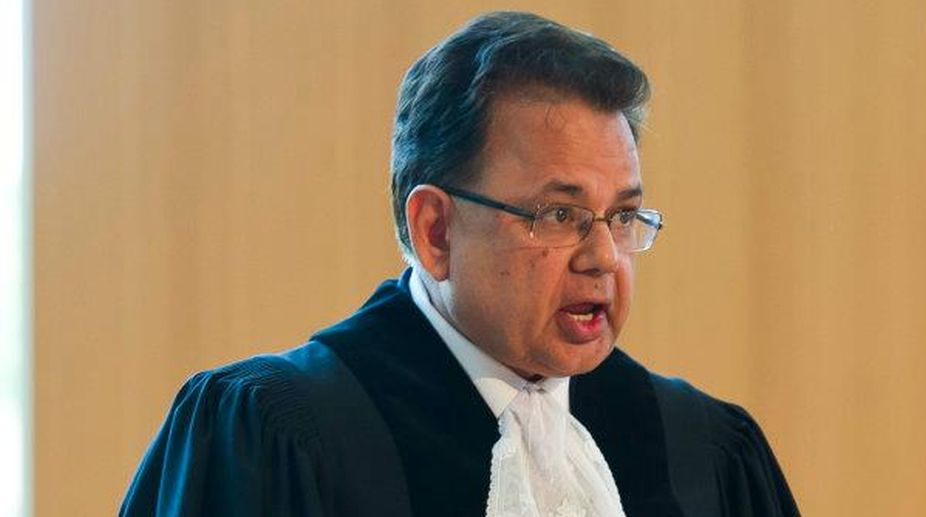Judge Dalveer Bhandari was re-elected to the International Court of Justice (ICJ) on Monday as the General Assembly rallied behind him in a show of strength that made Britain bow to the majority and withdraw its candidate Christopher Greenwood.
Experts say Bhandari’s election upsets what has become a traditional balance in the ICJ as besides a permanent member going unrepresented, four Asian countries will be represented on the ICJ bench instead of the usual three.
Advertisement
Three incumbent judges of the ICJ — President Ronny Abraham of France, Vice President, Abdulqawi Ahmed Yusuf of Somalia, and Antonio Augusto Cancado Trindade of Brazil – were elected along with Salam in the first four rounds of voting on November 9.
With Bhandari and the others elected all set to start their term in February next year, here are the top 10 points of his re-election and its importance for India:
- The withdrawal of its candidate, Christopher Greenwood by Britain which had the backing of its fellow permanent members, was a setback for the Security Council that had been locked in a test of wills with the Assembly.
- Britain’s Permanent Representative Matthew Rycroft said that his country was withdrawing Greenwood’s candidature keeping “in mind the close relationship that the United Kingdom and India always enjoyed and will continue to enjoy”.
- A candidate has to win a majority in both the chambers. Bhandari won majorities in the Assembly in the first 11 rounds of voting over two meetings, while the Council blocked his election by giving majorities to Greenwood in the ten rounds of balloting it held.
- Bhandari’s election was a dramatic face-saving turn of fortunes for India, as he lost the Asian seat on the ICJ to Lebanese lawyer-turned-diplomat Nawaf Salam, who had been campaigning for two years and had the backing of the powerful Organisation of Islamic Cooperation with 55 members in the UN.
- Bhandari got a second chance only because an unpopular Britain could not get an Assembly majority for a remaining judgeship requiring a runoff where the two chambers of the UN split in their voting.
- Bhandari’s cause became a rallying point for the nations not a member of the Council, who were chafing under the domination of the unrepresentative Council to make a popular show of force.
- India hammered home the representative character of the Assembly compared to the Council and insisted that the UN members follow democratic principles and re-elect Bhandari by accepting the global majority he has received in the Assembly.
- In the last round of voting on November 13, Bhandari received 121 votes, just short of a two-thirds majority in the 193-member Assembly, while Greenwood received nine in the Council.
- Diplomats familiar with behind-the-scenes manoeuvres said Britain indicated late last week that it would withdraw Greenwood, but over the weekend changed course with the backing of some fellow permanent members and came up with a plan for the the Council to call for ending the balloting and set up a joint conference to resolve the deadlock.
- India feared the outcome and campaigned resolutely to avoid it, pointing to the precedents in the elections in 2011 and 2014 and earlier when the candidate leading in the Council withdrew in favour of the candidate with the majority in the Assembly even though in those cases permanent members were not involved.
(With inputs from agencies)











